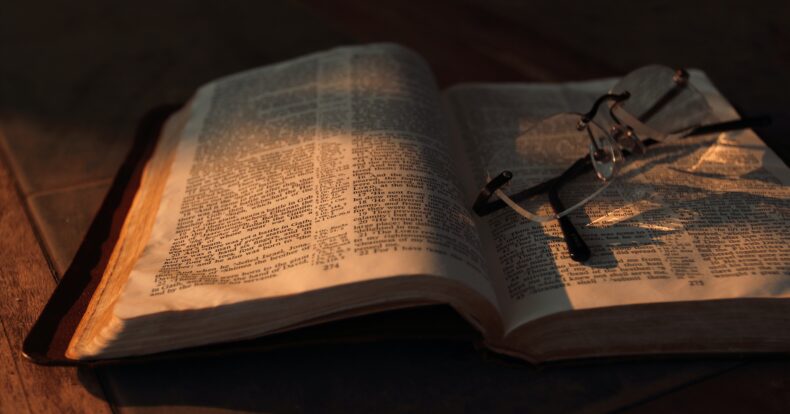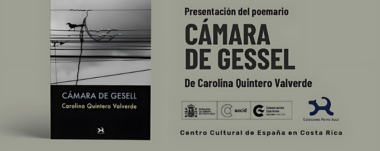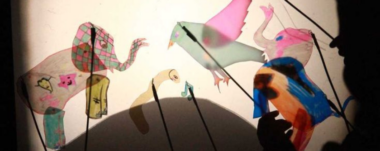A dream fulfilling another dream

This Tuesday we received the news of the death of Costa Rican novelist José León Sánchez, who leaves his mark not only in the hearts of his readers, but also in the history of national and international literature. In tribute, memory and gratitude to him, to his person and to his constant help, support and collaboration to young and emerging authors, we present this chapter of the novel: “Pájaros de ciudad”, where the author, Steven Cubillo, narrates the first time he met him and all the help and humanity he received from him:
A dream fulfilling another dream
I had arrived half an hour earlier and stood hesitantly in front of a low, ancient gate. I wondered if I should ring the bell or wait for the appointed time. While I was deciding I amused myself appreciating its garden, where gardenias and jasmines competed with each other with their whiteness, crowning bushes and hedges. My eye then fell to inspecting a small, elegant fountain in the middle of the orchard, where a chubby concrete angel dispensed from its mouth a stream of water that fell under pressure on plump, gracefully whiskered fish that, with almost childlike taste, poked their luminous backs to the surface. The door of the hearth opened, and over the doorway peered the one I so longed for to see:
– Kind Bastián, welcome to my home. Come in, he said, uncovering me, while I died of shame for having been caught arriving too early. I opened the iron parapet of the small gate and entered, trying with all my might not to let him notice my nerves. I followed him down a doorless passageway and as I did so I noticed him shorter than he appeared on television, contrasting his stature with his powerful giant’s voice. We came to a courtyard with a garden of tobacco trees bright from the previous night’s serenity, and we took a seat at a table, facing each other.
His tired eyes were hidden behind the two large lenses of his glasses, which were held up on his flat nose. I thought I knew his life from the many biographies and reports I had seen and read about him and his writing career, but now that I had him in front of me I understood that my only advantage was that I knew his pain.
– Do you drink? he asked and I nodded, believing from the elegance of his home that he would offer me a glass of some ostentatious wine, but to my benefit and surprise he pulled out a bottle of tequila.
– This tequila was aged six years in oak barrels, I brought it from Mexico, he said in his firm voice that was a far cry from his vibrant hands that with great difficulty poured a shot.
– Do you miss Mexico? I asked, aware that it had been his home for many years.
– I miss it very much, Bastián, he said readily and frankly. When Costa Rica was starving me and my family to death, Mexico fed and educated us.
– Do you think it is necessary to migrate to be an artist? I asked sincerely, as I had already been considering this possibility for several years, and he proclaimed in his sententious voice.
– In Costa Rica there is a problem… Ticos need an artist to be approved abroad in order to be able to value him after his return.
– I’ve noticed it, but… Why is this happening?
– Kind Bastián, our compatriots have had their self-esteem reduced so much that they don’t feel capable of judging for themselves…. I, for example, had to prove my talent in Mexico to be respected here. Look at the case of Chavela Vargas, there are many more examples.
His words were tinged with fatality. As we spoke I paid attention to his aged, sun-stained face: his eyes were rooted by reddened blood vessels and his scraggly white mustache remained lifeless despite the mobility of her mouth. Without realizing it we jumped from topic to topic.
He told me about his unseemly childhood on an indigenous reservation, about anecdotes from his early days in Mexico, about how much he admired writers Carlos Fuentes, Juan Rulfo and Carlos Luis Fallas. My answers, though timid, seemed to bring us closer, for we were neighbors from a past of scarcity from which I had not yet emerged, until he said:
– My first book I wrote on pieces of paper from cement sacks I gathered from the garbage, at that time when I had not forgotten how to cry.
– Don’t you cry anymore?
– I promised to forget how to cry since I got my freedom back, although sometimes what I forget is the promise. He kept silent and refilled our glasses with tequila with a hopeless clumsiness as he remembered, but that memory seemed to infuriate him because, as he placed the bottle on the table, he had an angry outburst and angrily unbuttoned the top buttons of his shirt and showed me on his chest a scar in the shape of a star:
– Do you see this scar? I didn’t deserve that bullet, I didn’t deserve it and much less so many years of imprisonment…. I only longed to be free! In his words a terrible anger could be identified, intensified by seeing how he hit the wound with his fist, as if he hated that part of his body. – The moment that bullet opened my flesh, the bitterest time of my life began.
Once he calmed down, he drank his drink without wrinkling his face and poured himself another. With abruptness he raised it and toasted:
– To life, dammit!
I still had a full shot, so I joined him and felt bad for rejoicing at the unimaginable miracle of being so intimate with my literary hero. I wasn’t so deluded as to believe we had struck up a friendship, though.
He was showing me the bark of a leafless tree that despite the miseries had always remained standing and with a dignified character continued to give flowers with the vitality it still had left. I knew that under that shell there was a poet’s soul, honed by pain. Every word from his mouth was a paternal embrace.
– I read your book! he said, drastically changing the subject, followed by an untranslatable silence.
– What did you think? I asked, aware that his answer would determine whether I would throw away my dream of being a writer or continue fighting.
– Kind Bastián, I am thrilled that you are not content with writing literature that meets stylistic and technical requirements, but that with your sensitivity you manage to make each text have a purpose dedicated to humanity. I felt like a pawn defeating all the kings of the world at once and a tear of pride wanted to appear, but I restrained myself by juggling all my emotions. Although I was also aware that maybe he was telling me what I needed to hear in order to get the best out of me.
– Any advice? I asked, ready to obey him.
–You should be grateful to the source of your pain, but not cling to it too much…. You have to make a few truces with the ego. Write to explore yourself and never try to understand art, otherwise you will go mad; be content to serve it.
– Sometimes I feel I don’t know where I’m going with my novels.
– If you feel that way, you’re on the right track. You don’t write to say something, you write to find something. If as a writer you know in advance what you are going to find with your work, then why waste the effort? If you write to make others think like you or to impress them, you’re doing it wrong. That’s not a novel, I don’t know if it’s a political pamphlet or a history report, but you don’t have the right to call it a novel. Whoever writes should not teach, he should explore.
– What should I explore?
– Your greatest doubt, what you have always wanted to understand, but neither science nor philosophy have been able to explain. Explore life itself and all the human concepts we have created for our entertainment. Don’t you have something you want to understand, but haven’t found how?
– The essence of things, especially the human essence, I said shyly.
– That’s a wonderful example. What questions do you have about that?
– I am intrigued to know what I really am and what is an aggregate. I also wonder: do animals, things and the universe have their own essence, or is it the same one that glues itself into us and drives us as individuals?
– Well, that’s what you have to explore: your doubts. You must understand the novel as a telescope, a gigantic apparatus that is the property of humanity and you borrow it to put something you are interested in dissecting under its powerful magnifying glass.
– A magnifying glass?
– Yes, a magnifying glass that can see the most gigantic, but also the smallest. A magnifying glass that simulates life, but at the same time is not limited to the vision of reality, but also observes the posture of the world of dreams, showing the supra-reality in which we live. You have no idea how much you will clarify by using this lens, although I warn you that there will be more doubts that will arise in the process than the answers obtained. But believe me, you will not regret it.
– Do you think what I wrote can be published?
– I think it deserves it. But I’m sure it won’t be your greatest work.
– I wish publishers in the country thought the same, I’ve been trying to publish it for months.
– That’s what I wanted to talk to you about too. I sent it to a publisher friend of mine and told him that I would recommend and sponsor you in everything. He’s barely read half of it, but he loved it; he wants to publish it.
We toasted one last time to celebrate.
Author: Steven Cubillo
Navigate articles




